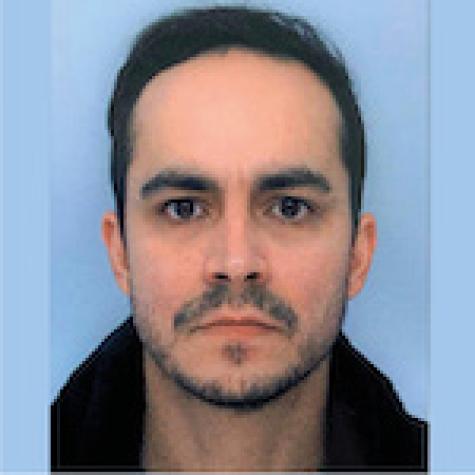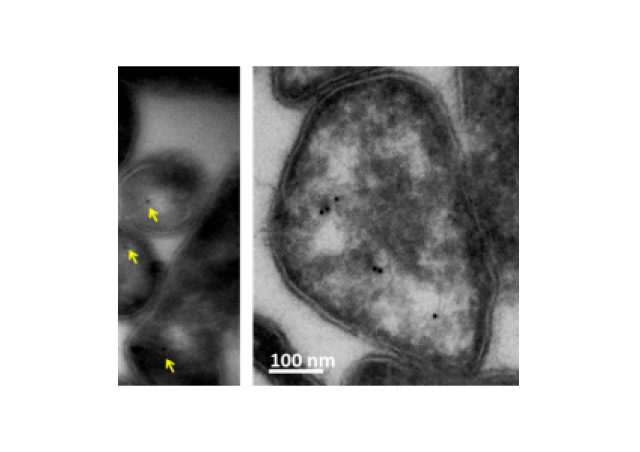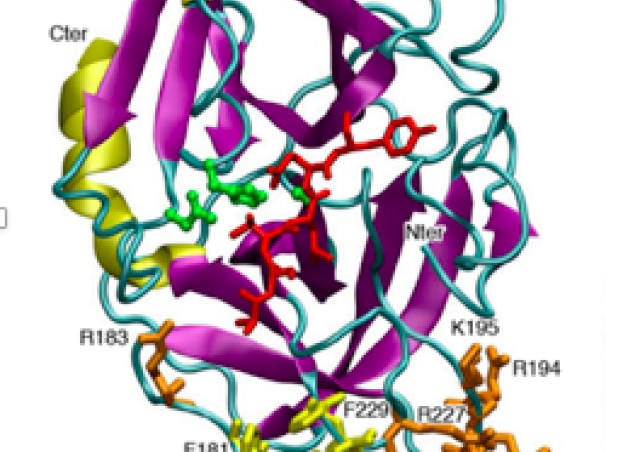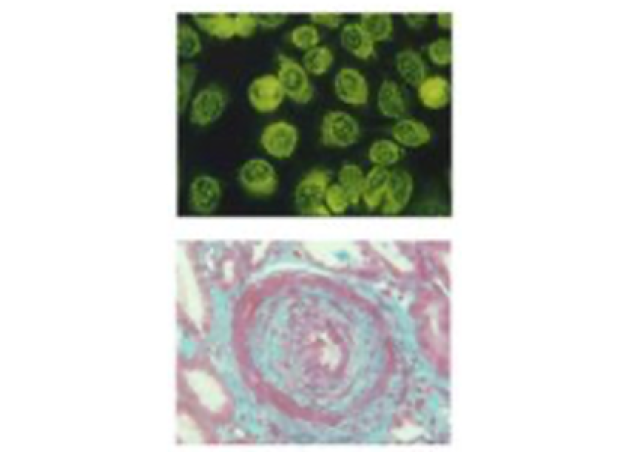Project members
Project
Cystic fibrosis (CF) is characterized by a chronic infection by Pseudomonas aeruginosa and a destructive neutrophil-dominated pulmonary inflammation. Neutrophils functions are altered in cystic fibrosis and might be considered as potential targets to dampen inflammation.
The main goal of our studies is to understand why the mechanisms controlling the activation and death of neutrophils in cystic fibrosis are disturbed and how we can reverse this « misactivation » of neutrophils.
Our studies are carried out in collaboration with Prof. Pierre-Régis Burgel and Dr. Clémence Martin in the department of Pneumology in Hôpital Cochin.
Cystic fibrosis is characterized by a neutrophil-dominated airway inflammation. This cartoon depicts various genetic and immunologic mechanisms participating to pulmonary inflammation in cystic fibrosis and involving various cell types.
Cystic fibrosis is characterized by mutations in the gene coding for the protein CFTR (Cystic Fibrosis Transmembrane Conductance) which is a chlorure channel. A CFTR defect in lung epithelial cells results in a production of a thick mucus thereby impairing the clearance of bacteria in airways and promoting infections and chronic airway inflammation dominated by neutrophils.Their persistance in the airway lead to respiratory failure.

Delayed apoptosis in neutrophil from cystic fibrosis patients is associated with increased PCNA expression
In our team, we have previously reported that neutrophils from patients with cystic fibrosis have a delayed apoptosis associated with an overexpression of the protein PCNA thereby favoring neutrophil survival. Interestingly, PCNA inhibition by a p21 peptide could reverse this phenomena.
Promoting neutrophil apoptosis in cystic fibrosis: a new therapeutic option ?
In the same line of thinking, we have shown that Roscovitine, a synthetic inhibitor of cyclin-dependent kinase can trigger neutrophil apoptosis and decrease inflammation (Moriceau et al J innnate Immunity 2009). Roscovitin is currently tested in a clinical trial in cystic fibrosis (Meijer et al J Innate Immunity 2016).













